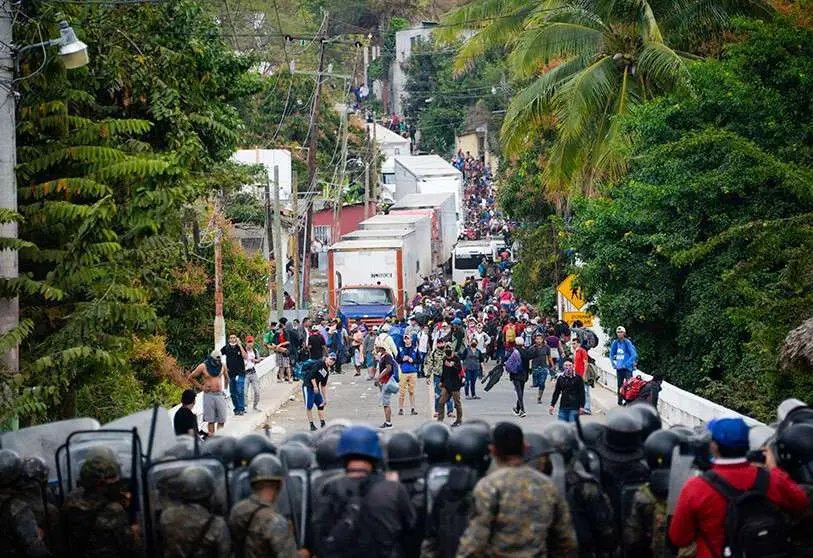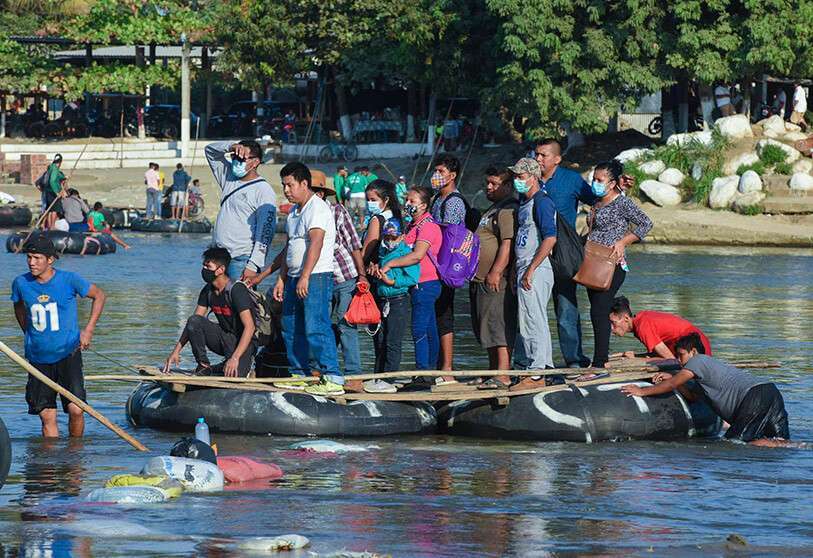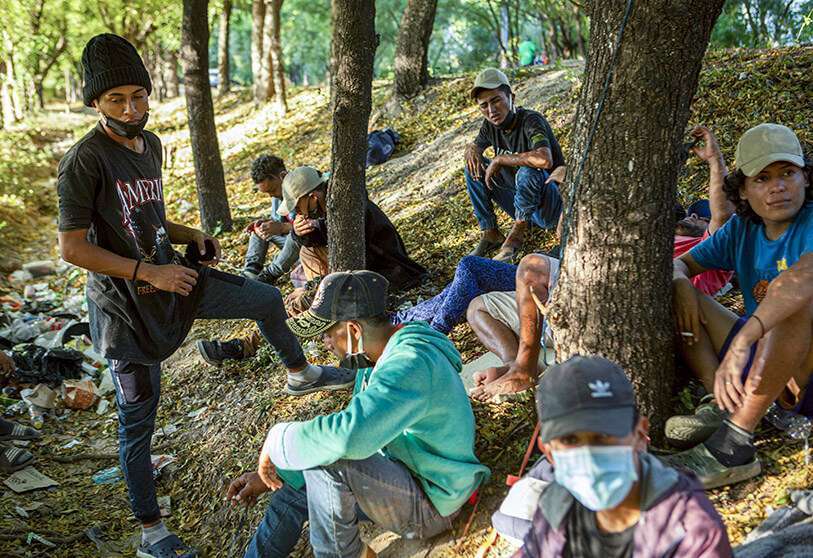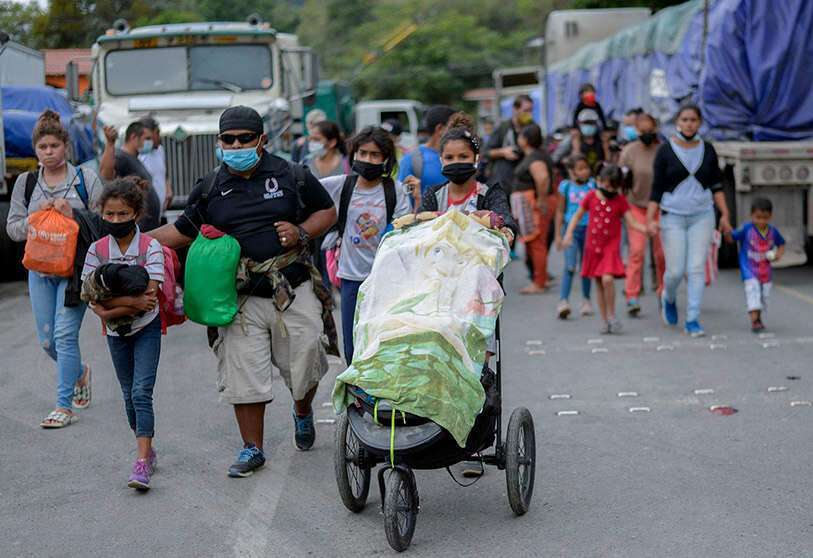Guatemala continues deportation of Honduran migrants

The Guatemalan government continued on Wednesday to deport hundreds of Honduran migrants who entered the country illegally last week with the aim of arriving in a caravan to the United States.
In the last six days a total of 3,661 Hondurans, including 510 minors, have been forced to return to their country, according to the Guatemalan Migration Institute.
As of last Tuesday, the figure was 3,300 Hondurans deported, making a little more than 360 people in the last 24 hours, although hundreds of Hondurans continue to return home voluntarily.
According to the spokesperson and communications director of the Guatemalan Institute of Communication, Alejandra Mena, "groups of members of the caravan have been identified in Guatemala City".
So far, on the other side of the country, at the Tecún Umán border between Mexico and Guatemala, some groups of Hondurans are reported to be arriving in dribs and drabs.

On Monday, the Guatemalan government forcibly disbanded part of the migrant caravan of 6,000 Hondurans fleeing poverty in their country and seeking work in the United States.
More than 500 National Civil Police officers and dozens of Guatemalan army soldiers cleared the road where the migrants were stranded in the department of Chiquimula, near the border with Honduras, about 200 kilometres east of the country's capital.
The Guatemalan government had already warned that it would not let the Hondurans advance without complying with migration requirements, mainly a negative COVID-19 test.
The caravan was disbanded after the operation and hundreds of Hondurans entered a village in Chiquimula, Vado Hondo, cornered by tear gas fired by the police.

Hondurans are part of a migrant caravan of more than 9,000 people, according to official estimates, which left San Pedro Sula, northern Honduras, in different stages on Wednesday, Thursday and Friday.
The group that was disbanded on Monday was made up of around 6,000 migrants, while the other 3,000 Hondurans in the caravan have managed to advance in some cases and, in others, the crowd has thinned out or started the journey back to their country.
The 6,000 migrants had been stranded in Chiquimula since last Saturday when security forces set up a barrier and stopped them from reaching Mexico and the United States.
The caravan of 9,000 Hondurans entered illegally between Friday night and Saturday through the El Florido border post in the same department of Chiquimula.

The migrants' goal is to reach the United States to have better living conditions, away from the poverty and violence that plague the Central American isthmus, especially after the pandemic and hurricanes Eta and Iota last November.
On 13 October 2018, the first caravan left from Honduras, with more than 4,000 migrants, some of whom were able to reach the United States.
Honduras is one of the 15 most violent countries on the planet, according to international organisations, and almost half of its 9.2 million inhabitants live below the poverty line.

The repression in Guatemala against thousands of Honduran migrants was a plan between the Honduran and Guatemalan governments "to make themselves look good with US policy", priest Ismael Moreno told Efe in Tegucigalpa on Wednesday.
The Honduran religious is director of the Jesuit Society's Team for Reflection, Research and Communication (Eric), which is based in El Progreso, northern Honduras, the city from which many young people left in the caravan on the 15th.
"What stands out in this experience of the caravans is the repressive response by the army and the security forces of the Guatemalan government, in full coordination with the discriminatory policy of the Honduran government. This is a very clear warning: under no circumstances will the caravans be allowed to continue as a method", Moreno emphasised.








